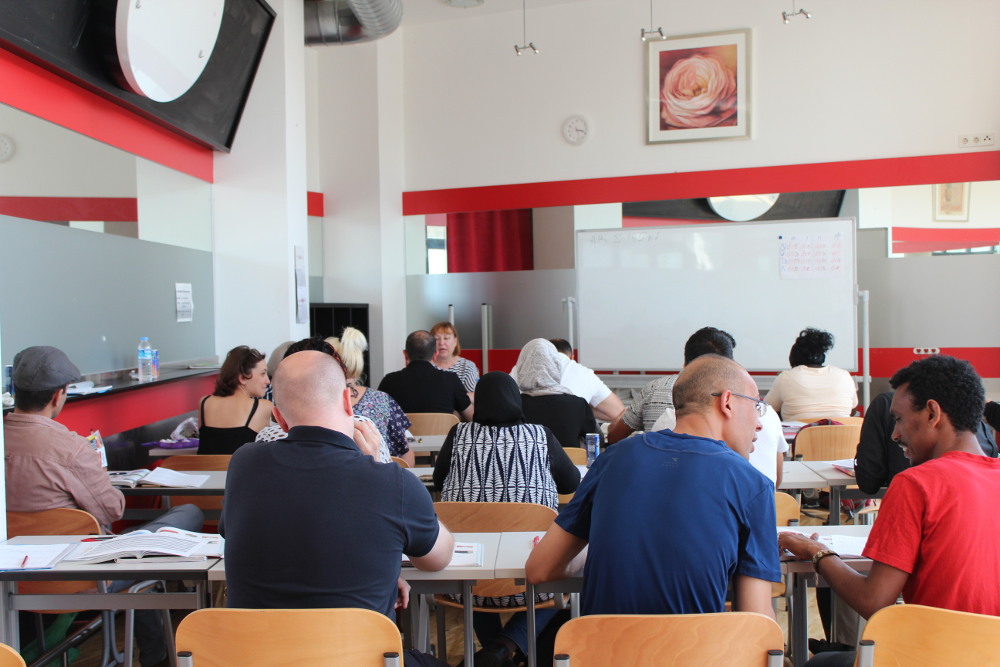KOBLENZ, Germany (ViaNews) – Once again, the migrant crisis is making headlines around the world with Immigrants crossing the United States’ border and migrants entering Europe.
In Europe, the migrant crisis has brought up an anti-immigrant attitude which has resulted in the rise of the political far-right popularity in some countries.
The European migrant crisis has forced governments to make hard decisions. Last week, when Italy and Malta refused to let more than 600 migrants enter their seaports, Spain stepped in to rescue them. A sign that there’s much to be done in Europe to harmonize how the Migrant crisis is handled among different countries.
“Germany has provided me with everything in a short period of time and I expect nothing more.”
Khaleel Mustafa, Lebanese Immigrant in Germany
Many Europeans don’t see Merkel as the migrant crisis hero, but migrants do
This welcoming attitude from many of the European countries is recognised and appreciated by the migrants fleeing war and hunger. While this crisis has put Mrs Angela Merkel, Chancellor of Germany, in a difficult political position in her own country, the people who have successfully arrived in Germany think of her as a saviour. The actions of leaders such as her and the Pope has left a very positive impact on migrants.
Khaleel Mustafa – Lebanon
Khaleel Mustafa, a thirty-three years-old migrant from Lebanon, who has just recently moved to Koblenz, a German city located 100 km south of Colone. Mustafa is a technical engineer by profession who’s now concentrating on learning the German language. He’s convinced that after getting familiar with the language he’ll be able to go back to work in his profession. He told Via News that “Germany has provided me with everything in a short period of time and I expect nothing more. The difference in the living standards is something I cannot compare and therefore the immigrants should obey the laws and contribute in the economy as well as the society”.
Asif Tanveer – Pakistan
Another example comes from Asif Tanveer, whose family left Pakistan more than twenty-six years ago. He appreciates the opportunities that Germany has provided him and his family. As an IT consultant in a Cologne-based company, he got the chance to meet many people from different backgrounds. In statements to Via News, he remembers the time “when there weren’t enough facilities” for the new arrivals and hence insist on the recent immigrants to “focus on learning the language and making a future for themselves while contributing into the economy”. Mr Tanveer is concerned about the future of the German Chancellor in the present political situation because of her decision to invite refugees in 2015. He implied that the refugees can help to make sure that she stays in power if “they fulfil her expectations”.

What the future holds for German immigrants
The German government investment to support the Migrant cause ensures that migrants get the opportunity to learn the German language for free, so to get easier access to the German employment market.
Nevertheless, the future isn’t straightforward for migrants. Some of them, like Omer Azizi from Afghanistan, also learning the German Language, are not sure about their future. They are not clear on what they want to achieve in the future, while still remembering the hardships they had to face back home. These migrants need some time to fully sort-out their lives and thereafter integrate into the European population.
Whilst the migrants’ saviour, Mrs Angela Merkel, is struggling to hold on to power, the opposition makes proposals for strict borders and detention centres for new arrivals. Migrants in the country are happy with what Germany and the European Union have provided for them. The political uncertainty has no effect on the immigrants’ commitment for a better and safer future.

